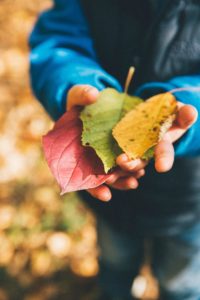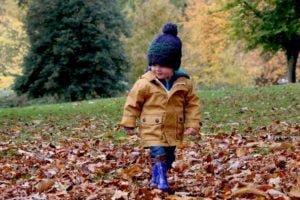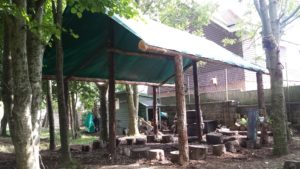Happy Outdoor Classroom Day 2019!
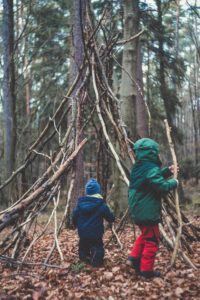 On Outdoor Classroom Day we bring you ideas of how to get children outdoors in line with the new Ofsted Education Inspection Framework guidelines.
On Outdoor Classroom Day we bring you ideas of how to get children outdoors in line with the new Ofsted Education Inspection Framework guidelines.
Below are extracts from Reports, Papers and the Education Inspection Framework.
In 2014 the growing weight of evidence was finally recognised by Nicky Morgan, the Secretary of State for Education at the time, who stated that England was to become a “global leader” in teaching character, resilience and grit to pupils.
‘There is growing evidence that children’s social and emotional skills – their ability to respond to setbacks, work well with others, build relationships, manage emotions and cope with difficult situations – are associated with success at school, as well as positive outcomes in adulthood.’ (Education Endowment Foundation 2017 Report).
There are many different definitions however, probably one of the most compact and accessible definition of the terms ‘resilience’ and ‘character’ has been developed by ADEPIS (ADEPIS Report (March 2015) ‘Building Resilience and Character in young people’ as outlined below:
‘Resilience is the capacity of an individual to ‘bounce back’ from adverse experiences, and to manage positive resources and skills, such as ‘character’ and ‘grit’, that can allow minimising negative outcomes of adverse circumstances.’
‘Character is a set of capabilities (including application, self-direction, self -regulation, and empathy) and soft skills that allow people to achieve their potential.’
The ability to manage setbacks and build on them, seeing them in a positive light that young people can learn from is essential. As Einstein noted ‘Failure doesn’t mean you are a failure, it just means you have not succeeded yet’.
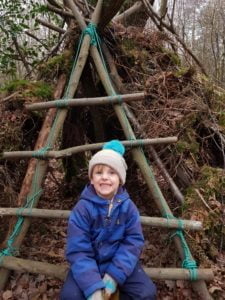 There is compelling evidence built up over many years that children and young people thrive through learning and engaging outside the classroom.
There is compelling evidence built up over many years that children and young people thrive through learning and engaging outside the classroom.
In September 2019 OFSTED introduced the Education Inspection Framework (EIF) which is built around the ‘connectedness’ of the curriculum. Assessors will focus on quality of education with the curriculum extending beyond the academic to include broader development such as: personal development, behaviour and attitudes, character and cultural capital. This presents an opportunity to extend into the outdoors!
Below are some key notes taken directly from the OFSTED EIF:
Q: How can development of character/personal development be supported in schools?
Personal development:
28. Inspectors will make a judgement on the personal development of learners by evaluating the extent to which:
- The curriculum extends beyond the academic, technical or vocational. It provides for learners’ broader development, enabling them to develop and discover their interests and talents.
- The curriculum and the provider’s wider work support learners to develop their character – including their resilience, confidence and independence – and help them know how to keep physically and mentally healthy.
Children can be supported in building resilience, confidence, independence and in knowing how to keep physically and mentally healthy.
The foundation of our work here at Circle of Life Rediscovery is built on the above qualities. Everything we do is based in nature.
Inspectors will make a judgement on behaviour and attitudes, including the extent to which:
‘Learners’ attitudes to their education or training are positive. They are committed to their learning, know how to study effectively and do so, are resilient to setbacks and take pride in their achievements’.
Q: What is Cultural Capital?
Early Years Inspection handbook p16:
Cultural capital
140. Inspectors will evaluate how well leaders ensure that the curriculum they use or create enhances the experiences and opportunities available to children, particularly the most disadvantaged. Some children arrive at an early years settings with poorer experiences than others, in their learning and play. What a setting does, through its curriculum and interactions with practitioners, potentially makes all the difference for children. It is the role of the setting to ensure that children experience the awe and wonder of the world in which they live, through the seven areas of learning.
We know that outdoor learning experiences can improve a young person’s feeling of well-being. A meta-analysis of 96 studies (see Report) shows that there are significant improvements in independence, confidence, self-efficacy, self-understanding, assertiveness, internal focus of control and decision making as a result of outdoor adventure programmes.
What we see every day: Learning in a natural environment has a high positive impact on a child’s behaviour. This is linked to the quality of facilitation.
Key approaches in the outdoors enable:
- Child led learning – allows children to discover interests in their own time and at their own pace. Intrinsic motivation and sense of agency is also developed.
- Learning in nature – hands on learning with a range of natural materials to encompass all learning types including kinaesthetic learners, e.g. clay, sticks, stones. Nature as metaphor and deep investigation.
- Physical health – wider range of movement in the outdoors such as, climbing, running, crawling, jumping and proprioception. Woodlands naturally provide logs, trees, hills, ditches, stumps which promote movement.
- Mental health – research has shown being in the outdoors reduces stress. The community of learners provides a safe, emotionally literate, welcoming atmosphere.
- Building resilience, confidence and independence – regular experiences in the outdoors provide opportunities for children to take supported risks at their own pace and to build on their abilities thus increasing confidence and self esteem.
Download the full document here: ‘Character and Resilience and the Outdoors’
Would you like us to build you an outdoor classroom? Visit our website for details!
Enjoy your Outdoor Classroom Day – we hope you manage to get outside today!
Transforming education, health and family through nature.
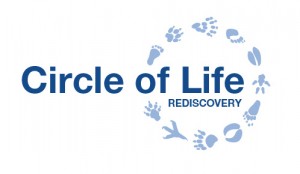 We provide exciting and highly beneficial nature-centred learning and therapeutic experiences for young people, adults, and families in Sussex woodlands, along with innovative continuing professional development for the health, well being and teaching professionals who are supporting them.
We provide exciting and highly beneficial nature-centred learning and therapeutic experiences for young people, adults, and families in Sussex woodlands, along with innovative continuing professional development for the health, well being and teaching professionals who are supporting them.
Follow us to stay in touch and find out about our events, training, CPD’s and family days:
Website | Email | Newsletter sign up | Facebook | Twitter | Instagram

